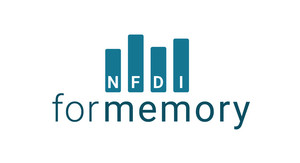What is the National Research Data Infrastructure?
The National Research Data Infrastructure(NFDI) is a coordinated network within the research community in Germany, at the heart of which are specialist consortia for the provision of science-oriented data services. The NFDI includes 26 consortia that have successfully applied within three rounds of calls for proposals of the German Research Foundation (DFG) and that represent a broad spectrum of scientific disciplines.
The University of Cologne is involved in a total of 13 consortia and thus also in all four humanities consortia: NFDI4Culture, Text+, NFDI4Memory and NFDI4Objects.




What consortia are there for your research within the humanities?
Do you work with tangible and intangible cultural assets?
The aim of NFDI4Culture is to establish a demand-oriented infrastructure for research data on tangible and intangible cultural heritage and to create a common structure at national level that strives for the sustainable preservation, standardization and provision of research data on cultural heritage. The consortium addresses the needs of a wide range of disciplines from architecture, art and music to theater, dance, film and media studies.
Is your research concerned with literature and language?
The aim of Text+ is to build an infrastructure for research data based on three data domains: Editions, language and text-based collections and lexical resources. With this orientation, the consortium is geared towards the needs of language and text-based humanities, including linguistics, literary studies, philosophy, classical philology, anthropology, non-European cultures and languages as well as language and text-based research in the social sciences, economics, politics and history.
Do you work in the historical sciences?
The NFDI4Memory consortium is an association of various memory institutions, libraries, archives, RDM facilities and researchers that has set itself the goal of establishing an RDM infrastructure for the historical sciences and other historical disciplines.
Do you focus on findings from three million years of human history?
NFDI4Objects is a consortium of scientists from various disciplines working on material heritage from three million years of human and environmental history. This includes artifacts, architecture, archaeological features and anthropogenically shaped landscapes as well as biological or ecological remains.
What services do the consortia offer for your research data?
Would you like individual advice, would you like to participate or do you have any questions?
The consortia offer support on all topics relating to research data, research data management, research software and research funding.
NFDI4Culture Kickstarter
Text+ Helpdesk
Text+ Research Rendezvous
NFDI4Objects Helpdesk
Would you like to use and search research databases for your research?
Text+ Federated Content Search (Lexikalische Ressourcen)
Are you looking for software and other tools for your research data?
NFDI4Culture Registry für Software und Datendienste
NFDI4Culture FAIRe Daten Check
Would you like to enrich and network your own research data?
NFDI4Culture Knowledge Graph
NFDI4Culture Semantic Kompakkt
Text+ Agentur Gemeinsame Normdaten
Would you like to archive or publish your own research data securely?
RADAR4Culture
NFDI4Culture Kuratierte Repositorienliste
NFDI4Culture x NextGen Books
Are you looking for financial support?
NFDI4Culture Flex Funds für Research Tools und Data Services
Text+ Förderung Kooperationsprojekte (jährliche Ausschreibung)
Representatives at the Faculty of Arts and Humanities
NFDI4Culture
- Dr. Lisa Dieckmann (prometheus image archive), Co-Spokesperson Task Area 3 Research Tools and Data Services, e-mail: lisa.dieckmann(at)uni-koeln.de
- Dr. Claes Neuefeind (CCeH), Expert Forum on Sustainable Software Development, e-mail: c.neuefeind(at)uni-koeln.de
Text+
- Prof. Dr. Dr. h.c. Andreas Speer (CCeH Board Spokesman), Data Domain Speaker Editions
- Kilian Hensen (CCeH), Editions, E-Mail: Kilian.Hensen(at)uni-koeln.de
- Prof. Dr. Nils Reiter (IDH), Language and text-based collections
- Felix Rau (DCH), language and text-based collections, lexical resources, e-mail: f.rau(at)uni-koeln.de
NFDI4Memory
- Chair of Early Modern History(Prof. Dr. Gudrun Gersmann), Department of History, involved in Task Area 5 Data Culture (contact: Christine Schmitt)
- Prof. Dr. Dr. h.c. Andreas Speer (Spokesman of the Board CCeH)
- Prof. Dr. Øyvind Eide (DCH)
- Jonathan Blumtritt (CCeH)
- Patrick Helling (DCH)
NFDI4Objects
- Prof. Dr. Øyvind Eide (IDH)
- Prof.'in Dr. Eleftheria Paliou (Department of Archaeoinformatics/CoDArchLab)
- Prof. Dr. Dr. h.c. Andreas Speer (Spokesman of the Board CCeH)
- Felix Rau (DCH)